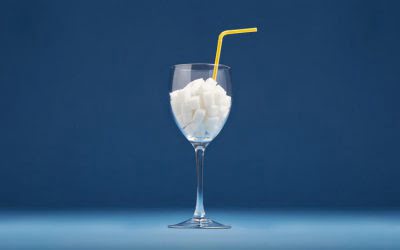High alcohol levels will also diminish hormones that can help proper kidney functions. Excessive amounts of alcohol will also dehydrate your body and impair the cells that are necessary for the kidneys to do their job. When alcohol enters your system, your brain slows down your reflexes and ability to time your movements. Drinking can also suppress your bodies production of glutamate that stimulates energy and excitement. As a result, drinkers will begin to slur their words or slow down their speech.
- Environmental and social factors can also influence an individual’s decision to abuse ethanol.
- End-stage alcoholism is the final, most destructive stage of alcoholism.
- We do not receive any commission or fee that is dependent upon which treatment provider a caller chooses.
- All the seemingly minor symptoms you felt, in the beginning, become more intense with chronic alcoholism.
- In this method, seizures are induced by passing an electrical current through electrodes on the scalp, triggering abnormal activity in brain cells.
What Is the scientific name for chronic kidney disease?
In many situations, life insurance companies wrongfully deny claims based on alcohol consumption. Our experienced life insurance beneficiary attorneys at Boonswang Law are https://contagio.krisennews.ch/2021/01/12/alcohol-and-headaches-symptoms-causes-and-more/ here to assist you in challenging and appealing the denial. Usually, a variety of factors contribute to the development of a problem with alcohol.
Sign Up & Get Our FREE Recovery Guide

Peer pressure can also contribute to ethanol abuse, particularly among young people. Adolescents and young adults may feel pressure to drink alcohol in social situations like parties or gatherings with friends. Additionally, individuals who are trying to fit in with a certain group may feel pressure to drink alcohol as a way to be accepted. A young adult subtype of alcoholism refers to the late-teen or early-twenties person who participates in binge drinking. Binge drinking consists of a male consuming five or more drinks in two hours and a female consuming four or more drinks in the same time frame. Binge drinking ultimately raises the blood alcohol level to above .08%, which is the legal limit.
The Insured Died While Engaging in an Illegal Activity Involving Alcohol
Mutual support groups and complementary therapies are also options. Treatment is offered in a variety of levels of care, from inpatient detoxification to outpatient therapy. A great resource, to begin with, is a person’s primary care physician. They can be a wealth of information on treatment options and provide referrals for care when a person is ready to seek help.
What are the symptoms of alcohol use disorder?
- End-stage alcoholism is the final stage of alcoholism, when serious mental health and medical issues are beginning to appear.
- Men are more likely to engage in binge drinking or heavy drinking.
They can also help you create a plan for treatment and avoid relapse. Next, he or she must undergo a detoxification process, followed by long-term abstinence and rehabilitation. Contact a treatment provider today to learn about the many types of treatment options or explore our rehab directory to find a rehab near you. If marijuana addiction you have a loved one struggling with ethanol abuse, it is important to offer support and encouragement.
Is migraine a chronic or acute disease?
If the insured is intoxicated and dies for any reason, the insurance company will deny the claim under this alcohol-related exclusion. Adult post mortems taking place at Southampton General Hospital between 8th October 2007 and 14th March 2008 were observed. Routine information on pathological findings in the heart, lungs and liver were documented, along with the ethanolism cause of death. Toxicology and liver histology results were also recorded if available. Data (unlinked, anonymised) was entered onto an SPSS database.

In this method, seizures are induced by passing an electrical current through electrodes on the scalp, triggering abnormal activity in brain cells. This therapy can help with depression and anxiety, but it can have many side effects and risks, so it should be used with caution. A chronic or severe alcoholic will go to great lengths just to satisfy their ‘thirst’ for alcohol.
Leave a Reply